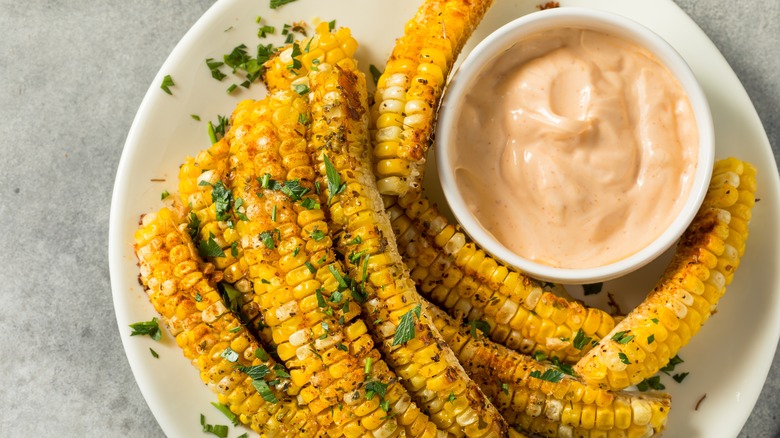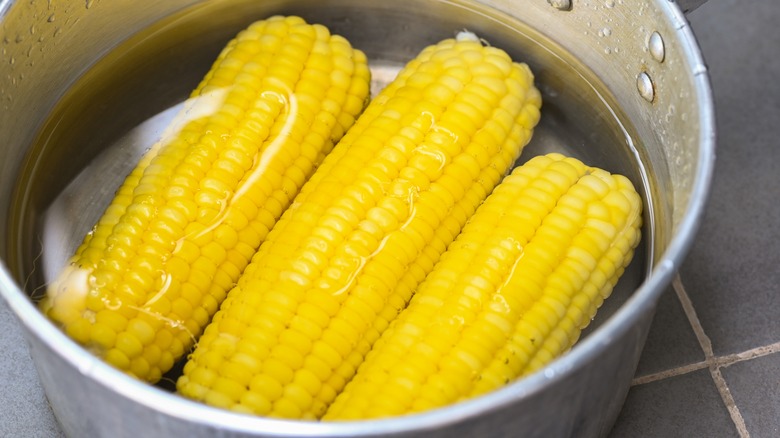What Happens If You Boil Corn On The Cob For Too Long?
There is nothing like fresh corn on the cob when it is at its sweetest. From May to October, corn is ready to be eaten and Americans love to eat it. Corn has been a part of the American agricultural scene for a long time. It originated in Mexico at least 7,000 years ago and has become a staple in many a household. But prepping this vegetable can be a real chore that's also a bit messy. There are a number of steps when it comes to shucking corn, with the biggest lift requiring its prepper remove the husks along with its stringy silks.
Once your corn is clean, it can be cooked in several different ways. Whether you like to roast it or grill it, rest assured your corn is going to be delicious. However, one of the easiest ways to cook corn on the cob is to boil it. Boiling corn on the cob is simple and only requires a pot filled with water and a stove. But, if you don't keep an eye on your corn on the cob while it is cooking and it boils too long, you may have a problem.
It turns rubbery
Boiling corn too long can happen to anyone, and when it happens, it can cause the kernels to look waterlogged and shriveled due to the large amount of starch corn contains. But overboiling doesn't just wreak havoc on your corn's appearance, it also causes the pectin in the kernels, which give corn its beautiful crunch when you bite into it, to breakdown. This causes your corn to lose its sweetness and taste rubbery — and no one wants that.
Luckily, this can be avoided. The secret is to bring your water to a boil over high heat before adding your corn ears. But here's the twist in this cooking plot: You don't want to actually boil your corn. Instead, once the ears are in the pot, turn off the heat. This method allows for the starches to thoroughly cook without dissolving the pectin.
America's Test Kitchen experimenters found that when you use this technique of declining heat, you can leave your corn in the pot of water for as little as 10 minutes or as much as 30 minutes and it will not destroy the corn's texture. However, if you are going to use this no-boil method, it is recommended that no more than six to eight ears of corn be cooked at a time.

